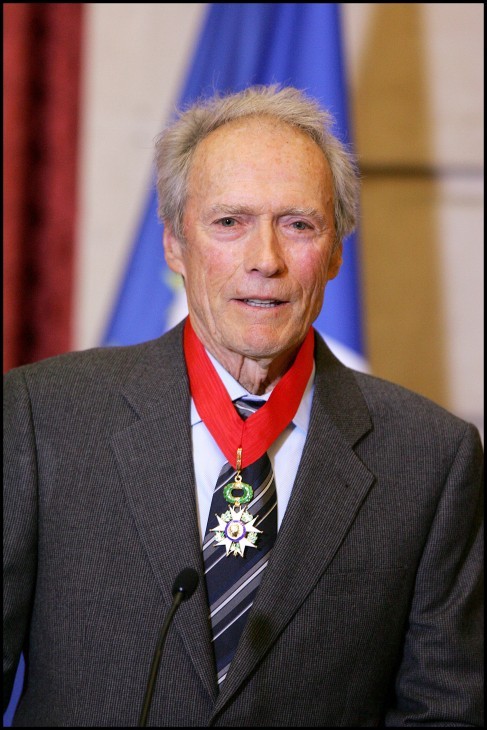Clint Eastwood, an iconic figure in Hollywood, has long been known for his rugged demeanor and memorable roles on the silver screen. However, his influence extends beyond cinema into the realm of politics. Over the years, Eastwood's political views have sparked both admiration and controversy. His unique stance often defies traditional party lines, making him a fascinating subject for political discourse.
Eastwood's approach to modern politics is rooted in libertarian principles, emphasizing individual freedom and limited government intervention. This perspective has shaped his public statements and actions, including his infamous empty chair speech at the 2012 Republican National Convention. As we delve deeper into his political ideology, it becomes clear that Eastwood's views are as complex and multifaceted as his filmography.
Eastwood's politics can be best described by his mantra: 'Leave everyone alone.' This statement encapsulates his belief in personal liberty and minimal governmental oversight. In a 2004 interview, he elaborated on his non-partisan stance, declaring loyalty solely to the country rather than any specific political party. This ideology aligns with his libertarian leanings, which advocate for both social liberalism and fiscal conservatism. Such a balanced approach has allowed Eastwood to support candidates from both major parties based on their alignment with his core values.
Exploring Clint Eastwood's Political Landscape
Throughout his career, Eastwood has demonstrated a willingness to engage with political issues that resonate with his beliefs. For instance, his testimony before Congress in 2000 highlighted his concerns about the intersection of law, legislation, and politics. By addressing these matters, Eastwood showcased his commitment to advocating for policies that promote individual rights and reduce bureaucratic overreach.
In addition to his legislative involvement, Eastwood's political affiliations have evolved over time. While he has supported both Republicans and Democrats, his decisions are guided by principle rather than partisanship. This pragmatic approach reflects his libertarian philosophy, where the focus remains on upholding fundamental freedoms regardless of party affiliation.
Despite his efforts to remain politically neutral, Eastwood has faced criticism from certain quarters within Hollywood. Some liberal critics argue that his endorsement of conservative figures, such as his RNC speech, undermines his artistic integrity. However, Eastwood maintains that his political expressions stem from genuine convictions rather than opportunism, further illustrating his dedication to principle-driven politics.
An Analysis of Clint Eastwood's Stance on Social Issues
Eastwood's libertarian outlook extends to various social issues, where he advocates for progressive stances such as pro-choice and support for same-sex marriage. These positions underscore his belief in personal autonomy and equality, reinforcing his commitment to individual rights. By embracing socially liberal views alongside fiscally conservative ones, Eastwood exemplifies the nuanced nature of libertarianism.
His involvement in dramatic and sometimes controversial moments at political conventions also highlights his willingness to challenge conventional norms. The empty chair incident during the 2012 RNC serves as a prime example, where Eastwood delivered a thought-provoking yet unconventional address. Such instances not only capture public attention but also spark meaningful discussions about the state of modern politics.
Moreover, Eastwood's films often reflect his political sentiments, offering audiences subtle commentary on contemporary issues. Movies like Richard Jewell explore themes of justice and media scrutiny, resonating with viewers across the political spectrum. Through his cinematic work, Eastwood continues to inspire dialogue and reflection on the complexities of our society.
Clint Eastwood's Impact on Political Discourse
As a prominent figure in both entertainment and politics, Clint Eastwood wields significant influence over public opinion. His ability to transcend traditional party lines enables him to engage diverse audiences and foster constructive conversations about pressing issues. By prioritizing principle over partisanship, Eastwood sets a powerful example for others in the industry and beyond.
Although his political views occasionally provoke controversy, they also generate valuable insights into the evolving landscape of American politics. Eastwood's steadfast commitment to individual freedom and limited government intervention serves as a reminder of the importance of maintaining open-mindedness and critical thinking in today's polarized climate.
In conclusion, Clint Eastwood's contributions to political discourse extend far beyond his appearances onscreen. Through his words and actions, he challenges us to reconsider preconceived notions and embrace a more inclusive understanding of what it means to be politically engaged. As we continue navigating the complexities of modern politics, Eastwood's legacy offers inspiration and guidance for future generations seeking to make a difference in their communities and beyond.

